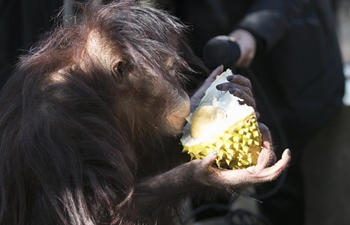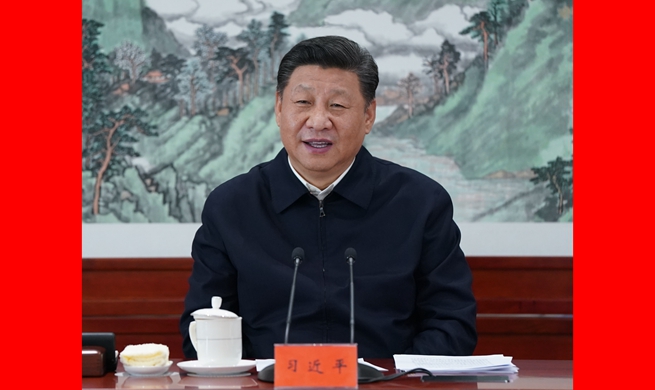WASHINGTON, Jan. 25 (Xinhua) -- American researchers developed an one-two punch antibody that may become a universal flu vaccine in the future.
The study published on Friday in the Journal of Experimental Medicine showed that the antibody can target two key proteins on the surface of the influenza virus, providing an enhanced tool to neutralize influenza virus and mobilize innate immune cells to fight them.
Hemagglutinin and neuraminidase are two proteins on the surface of the flu virus that enable infection. The former allows the virus attaching with host cell membranes while the latter releases virus offspring, according to the study.
The obstacle to develop a universal flu vaccine is that antibodies that the hemagglutinin can mutate rapidly to escape the blow of antibodies that recognize only hemagglutinin, resulting in vaccine-resistant strains of the influenza virus each year.
The new antibodies, however, can not only block viral entry into host cells by inhibiting hemagglutinin cell fusion activity, but also inhibit the release of newly replicated virions by blocking nearby neuraminidase molecules, according to researchers from National Institutes of Health.
The mice experiments showed such a two-pronged strategy improved animal's survival of a severe flu infection.
The researchers contributed it to an inhibition of neuraminidase that may prevent the innate immune cells to fight virus.
The innate immunity is believed to be a universal way to neutralize flu virus in spite of their rapid mutations, according to the researchers.













